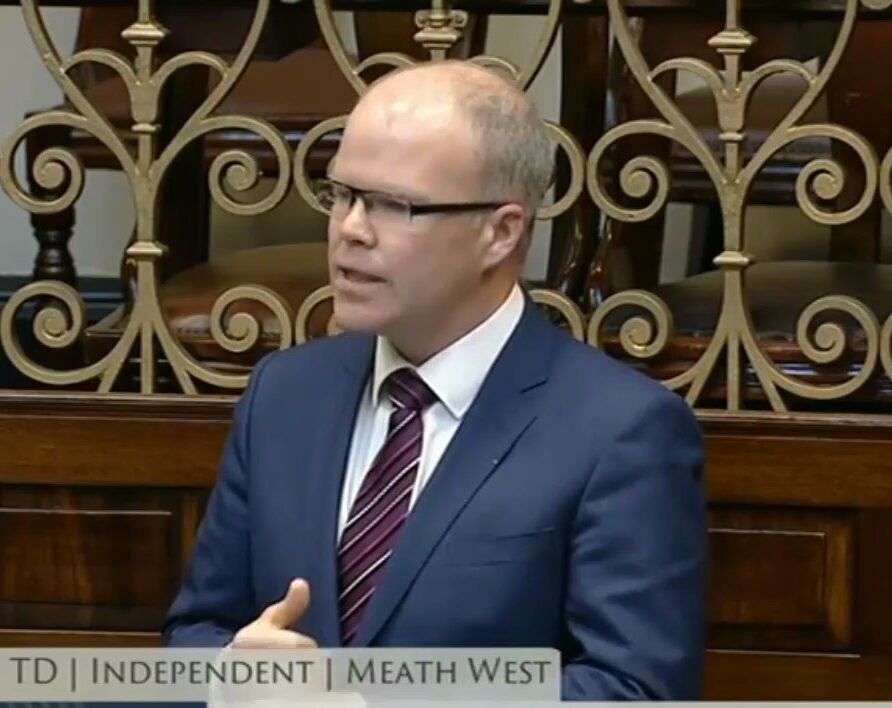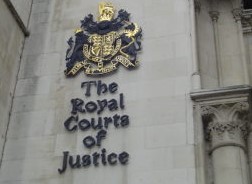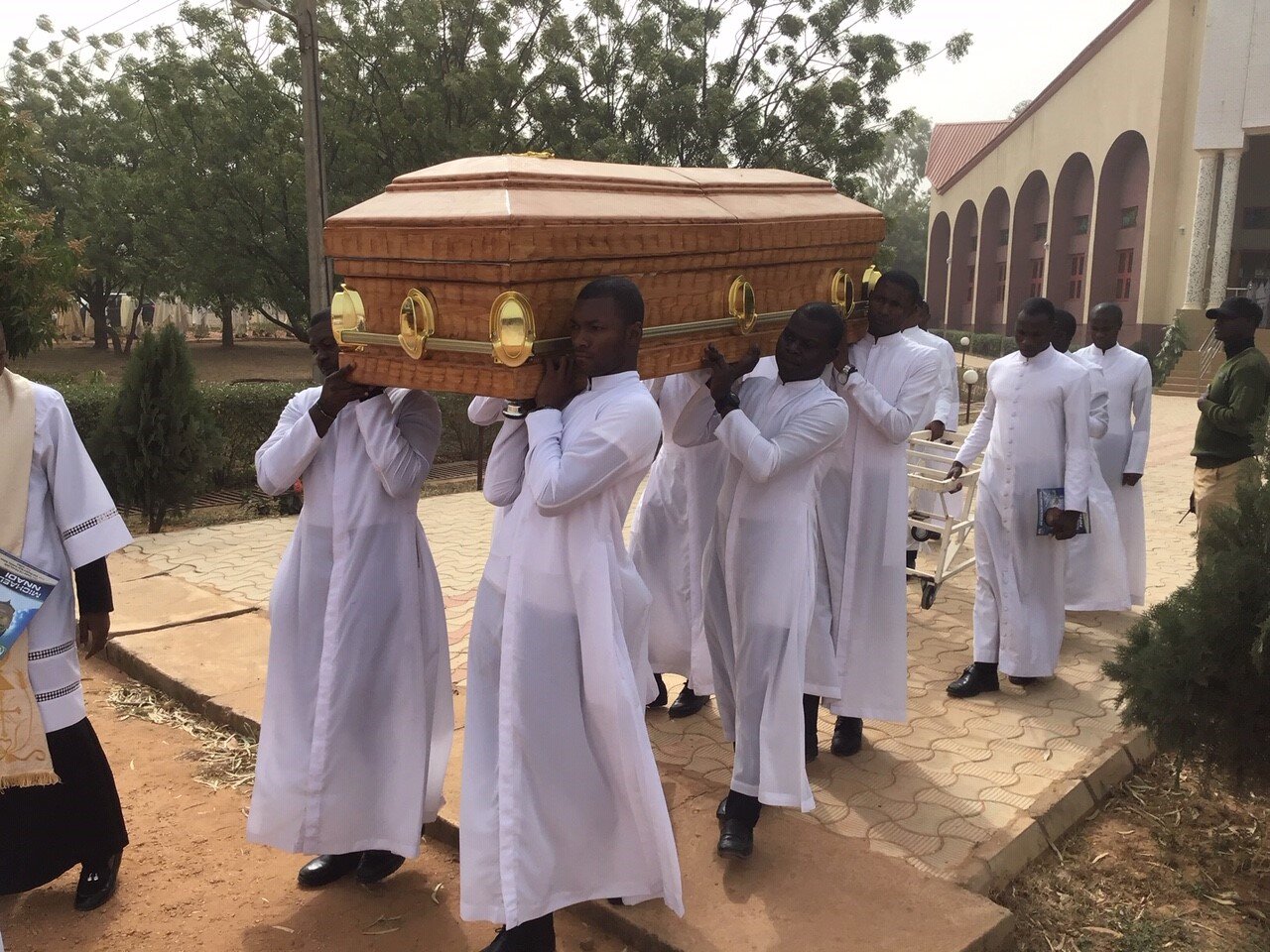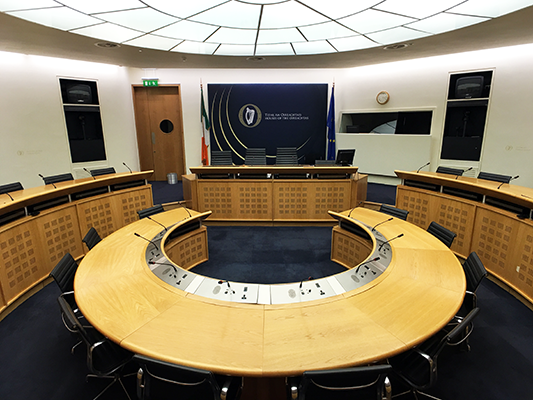
The Catholic archdiocese of Dublin experienced a drop in income of more than a third in 2021, from €7.4 million in 2020 to €5.2 million in 2021, according to its latest financial report.
In 2021 the pandemic continued to have a detrimental effect on Mass collections due to the prolonged suspension of public worship and restrictions on numbers allowed attend. When churches were permitted to reopen, only 50 people could attend services and passing collection baskets along pews was not permitted.
“It was hoped that 2022 would see a return of the collections to the pre-pandemic levels. However, this has proven to be too optimistic as this has not been the case to date,” the report said.
The financial report also found that the Common Fund collection (first collection at Masses) had dropped 49 per cent when compared to pre-pandemic collections
Most of the costs of running diocesan offices are met by the second weekly Share collection. It dropped by 1 per cent in 2021 compared to 2020 figures but, when compared to pre-pandemic 2019 collections, it was down by 61 per cent.

The proposed ‘Hate Crime’ law is a threat to the democratic functioning of society, according to the leader of Aontu.
Speaking in Dáil Éireann last week, Peader Toibin urged Minister for Justice, Helen McEntee, to rethink the bill.
“I like many others want a society where citizens engage respectfully, with empathy and with generosity with views or ideas that they disagree with. I believe that can be achieved culturally in society and by raising our children with respect. But this is a bill that takes away human rights”.
It reduces liberty and freedom for citizens to democratically express themselves. The so-called definitions in the Bill are so ill defined that they are wide open for misinterpretation and abuse. I and many others fear that it will inhibit the ability for honest democratic discourse and as a result weaken societies ability to grapple with real and significant challenges. Your Bill is a threat to the democratic function of our society”, he said.

A legal challenge to the unilateral imposition of abortion on Northern Ireland by the British Government has been unexpectedly adjourned, mid-hearing, and postponed until January.
The case alleges the Secretary of State lacks the authority to advance an abortion agenda without the cooperation of Ministers in the devolved institutions.
The unexpected development last week on what was supposed to be the second day of oral submissions before the Court of Appeal.
On day one of the case, John Larkin, SPUC’s senior counsel, drew the Court’s attention to the wording used in Section 9 of the 2019 law that decriminalised abortion in the Province and showed that the power conferred on the Secretary of State was, in fact, much more limited than the Government believed.
Mr Larkin’s argument appeared to take the Secretary of State’s legal team completely by surprise so, on Wednesday morning, they asked for more time to consider how they might respond to it. The Court granted an adjournment and decided not to move forward with the rest of the case until January.

Established by Revelation Media and Alliance Defending Freedom, the petition, addressed to President Biden, states: “Removing Nigeria from the CPC list has led to the emboldening of Islamic terrorists, radical militants, and other extremists who kill, torture, and abduct Christians, as well as Muslims who reject extremism. Adding Nigeria back to the CPC list will send a powerful message that the religious persecution taking place in Nigeria is unacceptable”. In the coming weeks, the State Department will release its yearly list of CPC designations.
“It is extremely important that the United States maintain pressure on Nigeria for the egregious human rights violations, including religious freedom abuses, occurring in the country. Removing Nigeria from the Country of Particular Concern list signaled an alarming disregard for the state of religious freedom in the country,” said Kelsey Zorzi, Director of Advocacy for Global Religious Freedom for ADF International.

Numerous flaws in a proposal for abortion exclusion zones have been laid out by Gardai at an Oireachtas committee meeting on Wednesday.
Representatives from An Garda Síochána appeared before the Joint Health Committee as part of its pre-legislative scrutiny into a bill that would criminalise pro-life supporters for engaging in peaceful activities within one hundred metres of abortion-providing facilities.
Responding to the appearance, Pro Life Campaign spokesperson Eilís Mulroy said the Gardaí confirmed that there have been zero arrests, prosecutions, or otherwise arising from protests outside abortion facilities under current legislation.
“We can reasonably infer then that there has been no demonstrated cases of harassment or intimidation, which are already crimes under existing law. While there have been small displays opposing abortion, the insinuation that these ‘protests’ constitute a danger towards women is an unjustifiable smear”.
She added: “Issues were pinpointed about the impracticality of setting the hundred metre exclusion zones. Incredibly, it transpired that the first meeting between An Garda Síochána and the Department of Health only occurred last Monday, 31st October. The mounting problems related to enforceability point to the irresponsibility of allowing legislative proposals to be hijacked by ardent campaigners and ideologues”.

Church sermons condemning abortion or homosexual activity, or refusal to acknowledge the preferred gender of trans people, will not necessarily qualify as “hate speech” under the new legislation to be brought before the Dáil on Wednesday, according to officials from the Department of Justice. However, judges are not bound by what politicians say about their laws. They are only bound by the text.
In response to questions about how recent controversies might be treated under the proposed legislation, the Department said it would not comment on individual cases.
However, in a detailed response to The Irish Times about the aims of the legislation, the department said that it is only “extreme forms of hate speech that deliberately and recklessly incite or stir up acts of hostility, discrimination or violence that will be criminalised”.
This seems contrary to the text of the bill which prohibits actions “with intent to incite violence . . or [are] reckless as to whether such violence or hatred is thereby incited”.
“With the right to freedom of expression,” the Department of Justice said, “individuals can hold and express opinions which others might find offensive or shocking. The new legislation recognises that communication is not taken to incite violence or hatred solely on the basis that it involves or includes discussion or criticism of matters relating to the protected characteristics.”

Exit poll data on voter turnout revealed that married individuals favoured the GOP during this year’s midterms, while unmarried women significantly preferred Democrats.
Married men voted for Republicans 20pc more than they did for Democrats. Single men also chose GOP candidates on the ballot, but by a much slimmer margin of 7pc, according to CNN exit polls.
The same exit polls also showed married women favoured the GOP by 14pc.
Unmarried women, however, sided with Democrats a whopping 37pc more than they did Republicans, according to CNN’s data, which was collected from 18,571 total respondents.
“One of the fascinating things about our ongoing political realignment is the massive political incentive Democrats have to keep women unmarried,” tweeted political commentator Mollie Hemmingway.
“The Democrats’ radical abortion and LGBTQ agenda coupled with their negligent governance of our cities makes perfect sense when you realize the destruction of the nuclear family and dependence on government welfare keeps the Democratic Party in power,” writer Jayme Chandler Franklin also said on Twitter.

An Independent TD has voiced “serious concerns” about the effect a proposed new hate speech law could have on counter-cultural moral views.
Speaking to The Irish Catholic newspaper, Laois-Offaly TD, Carol Nolan, said she is worried about “the impact that such regressive legislation will have on the capacity of organisations and institutions, including the various Churches, to continue operating in a space where their counter-cultural message won’t be weaponised against them.
“Nothing in our recent political and cultural history suggests to me that the counter-cultural message of the Church on everything from pro-life issues to gender issues, will be given the benefit of the doubt or protected as legitimate freedom of speech,” Ms Nolan said.
The Bill states that in any proceedings for an offence under this section, a defence can be based upon a “reasonable and genuine contribution to literary, artistic, political, scientific, religious or academic discourse”. However, it is not made clear what a “reasonable and genuine contribution” is.
The law is setting up an “open season” on the Church, Ms Nolan said, and will “practically institutionalise the relentless attack mode that we have seen so much of in recent years”.

An Irish theologian has called on Bishop Ray Browne to publicly correct an “egregiously wrong” statement the prelate made about a controversial homily in Listowel, Co. Kerry.
Dr Tom Finegan of Mary Immaculate College in Thurles said that the bishop’s assertion that the views of Fr Seán Sheehy “do not represent the Christian position” is incorrect.
Retired priest Fr Sheehy continues to defend what he said regarding, sin, homosexuality, abortion and transgenderism during Mass in St Mary’s Church.
In a feature-length article in the Irish Catholic newspaper, Dr Finegan said the priest’s message was “essentially true” and that “Bishop Browne is wrong – egregiously wrong – when he bluntly asserts that Fr Sheehy’s statements ‘do not represent the Christian position’.
“Because his [Bishop Browne’s] assertion encourages presumption and discourages conformity to Christ, it is harmful to the eternal spiritual welfare of all who hear it. As a bishop he should publicly correct his remark for the sake of those with ears to hear.”

Ballot initiatives to expand abortion passed in a number of US states on Election Day. Some of the measures are even more permissive in their effects than the recently repealed Roe vs Wade ruling.
Americans in five states voted on the issue of abortion during the midterm elections on Tuesday. Three states — California, Michigan, and Vermont — proposed constitutional amendments to advance abortion. All three passed.
At the same time, citizens in Kentucky weighed a pro-life amendment and Montana voters considered a measure that promised to protect babies who are born alive after attempted abortions. Kentucky voted ‘no’ to its pro-life measure. Montana’s results are still coming in, though the majority so far have rejected the additional protection for infants who survive abortion.
Some of the measures went beyond the already very liberal Roe v Wade abortion rights regime.
In Michigan, Proposal 3 would effectively “enshrine a right to abortion on demand up to birth” and “remove parental-consent requirements for minors seeking . . . abortion, contraception, and sterilization”, according to journalist, Madeline Kearns.